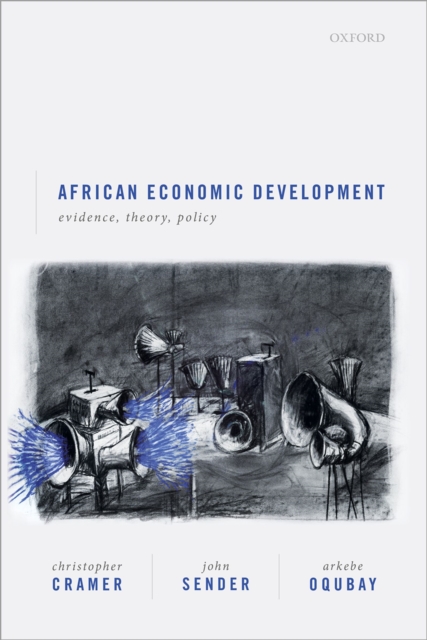
African Economic Development : Evidence, Theory, Policy PDF
by Christopher Cramer, John Sender, Arkebe Oqubay
Description
This is an open access title available under the terms of a CC BY-NC-ND 4.0 International licence.
It is free to read at Oxford Scholarship Online and offered as a free PDF download from OUP and selected open access locations. Unevenness and inequalities form a central fact of African economic experiences.
This book challenges conventional wisdoms about economic performance and possible policies for economic development in African countries, using the striking variation in economic performance as a starting point. African Economic Development: Evidence, Theory, and Policy highlights not only difference between countries, but also variation within countries.
It focuses on issues relating to gender, class, and ethnic identity, such as neo-natal mortality, school dropout, and horticultural and agribusiness exports.
Variations in these areas point to opportunities for changing perfomance, reducing reducing inequalities, learning from other policy experiences, and escaping the ties of structure andthe legacies of a colonial past. African Economic Development rejects teleological illusions and Eurocentric prejudice, criticizing a range of orthodox and heterodox economists for their cavalier attitude to evidence.
Instead, it shows that seeing the contradictions of capitalism for what they are - fundamental and enduring - may help policy officials protect themselves against the misleading idea that development can be expected to be a smooth, linear process, or that it would be if certain impediments were removed. Drawing on decades of research and policy experience, this book combines careful use of available evidence from a range of African countries with economic insights to make the policy case for specific types of public sector investment.
Information
-
Download - Immediately Available
- Format:PDF
- Pages:224 pages
- Publisher:OUP Oxford
- Publication Date:10/06/2020
- Category:
- ISBN:9780192568373
Other Formats
- EPUB from £30.87
Information
-
Download - Immediately Available
- Format:PDF
- Pages:224 pages
- Publisher:OUP Oxford
- Publication Date:10/06/2020
- Category:
- ISBN:9780192568373






